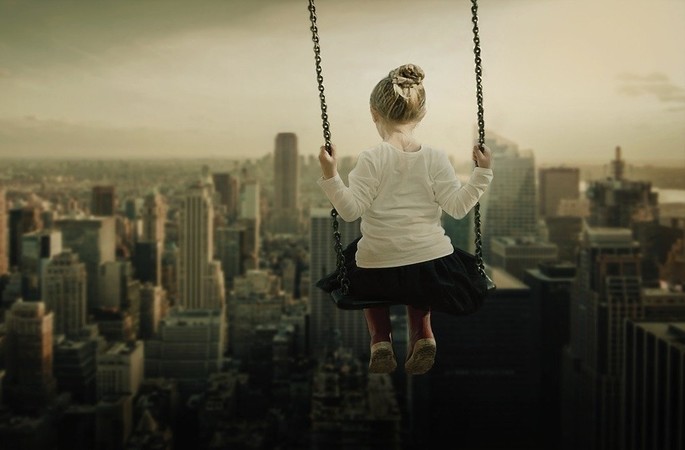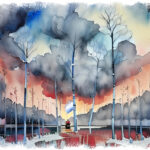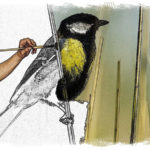When I was growing into adolescence from childhood, my dreams started to shift as well. From an ardent longing to fly from mountains to paddy fields, I began to think about robots doing my homework and booking holidays in the moon.
2020 seemed a faraway dream. A land of unseen curiosity. Sometimes, still, it is unimaginable that we are in the doorstep of 2020. As I write this note, I think back on the predictions I had for this new decade. Few of them are,
1. Aliens will announce war and destroy parts of our world using secret technologies.
2. We will be more concerned and compassionate towards the environment, and new technologies would be conceived to safeguard nature.
3. The world will become one village, connected more than ever, thanks to Digitalisation.
4. Intelligent and fair leaders will rule the world. People will learn to accept each other and coexist.
But
As the new year, 2020, dawned, global stability and security remain uncertain. There are no aliens invading the earth anytime soon. But there are ongoing wars across the globe. Great power rivalries between the superpowers of the world have made the world into a battlefield and a flourishing base for the arms trade.
Exaggerating and instilling irrational fears in people, the politicians paved the way for the arms trade. That is why the conflicts across the world will never going to end. There are no Martians behind, but military industry and so called superpowers.
As 2020 began, Australia was on fire. The spreading bush fires have wiped out natural habitats of the unique wildlife apart from destroying homes and killing people.
An estimated half-billion animals have been killed in the brushfires according to the ecologists from the University of Sydney. The actual number is likely much higher. And the real cost is still not known.
Climate Change is one of the critical issues of our time, and we are at a crucial junction. Kaleidoscopic weather patterns, rising global warming, increasing natural disasters are in front of us as giant question marks. The impacts of climate change are universal and are affecting even the small farmer in a rural village in a forgotten corner of the world. The future seems bleak.
This is a digital era, where it is said that humans are closely connected than at any other time in history. But are not we growing more disconnected than ever?
Digitalisation shapes our life experiences by offering boundless opportunities to learn and socialise. Yet we live in separate universes and do not communicate in a meaningful way any longer. One could have thousands of friends and followers in social media, but still feel lonely and isolated. The virtual connection can never replace face-to-face human contact.
We ignore our own family and close friends because we are always staring at our smartphones, checking emails, texting, and watching video clips. We do not listen to each other with interest anymore. Our digital devices interfere with our lives from dawn to dusk.
There is an upsurge in global loneliness, and the fascinating insight is that social media can be a great instrument to counter this. But it seems to be making it worse. When was the last time you had a chat with a close friend over a cup of masala chai instead of WhatsApp texting?
Speaking about the global politics,Right-wing populism is on the rise throughout the world.
Democracies all over the world have turned toward the right, electing candidates who stand for nationalistic values.
Right-wing populism has different features in different countries, but common under-currents can not be ignored. The right-wing parties throughout the world share common traits such as xenophobia, islamophobia authoritarianism, hostility towards ethnic minorities.
The rejuvenation of far-right in the Western Hemisphere was contagious. Ethno-nationalist authoritarian-right are rampaging across the world. Dictatorial figures who have appalling past of advocating race supremacy, xenophobia are being elected. One democratic country after another comes in the hands of the proponents of ethno-nationalist cults which similarly emulate each other regardless of geographical and cultural factors.
-Farhan Wahab in Colombo Telegraph.
31st of January UK exited from the EU. Brexit was all about instilled fear about the invasion of immigrants, it to loss of jobs. In one-sentence- Eliminating everything which is a threat to the sovereignty of the nation.
In the United States, President Donald Trump’s reign has unbolted doors wide open to hate crimes and anti-immigrant sentiments.
As 2019 ended, in India prime minister Narendra Modi’s parliament has passed a bill which offers amnesty to non-Muslim illegal immigrants from three neighbouring countries. That fear has been further compounded by the existence of the National Register of Citizens (NRC). The NRC requires people to prove they are citizens of India.
How quickly right-wing populism has spread globally, or at least in the countries with democratic systems, is remarkable. When this decade began, hardly any of the parties and leaders that now run the world, or appear set to, were on anyone’s radar. Now, these movements are spreading quickly. Among the world’s democracies, a growing number has embraced right-wing populism, and either has governments led by populist parties or supported by them.
-Annalisa Merelli in Quartz
Optimism is a strategy for making a better future. Because unless you believe that the future can be better, it’s unlikely you will step up and take responsibility for making it so. If you assume that there’s no hope, you guarantee that there will be no hope.
-Noam Chomsky
Our world is falling apart, but I like to see the world from the eyes of my 12 years old self. I would like to see the future as a promise more than a threat. Like Chomsky says ‘If you assume that there is an instinct for freedom, there are opportunities to change things, there’s a chance you may contribute to making a better world. The choice is yours. ‘
When fascism is trying to divide us by encouraging to each other, it is time we need radical love of compassionate politics. A narrative which emphasises individual euphoria over collective well-being is reigning our world, now. The only rebuttal to the politics of fear, anger, and divisions, could be holding out hands together and walk forward to respond to the hate with solidarity and love.



